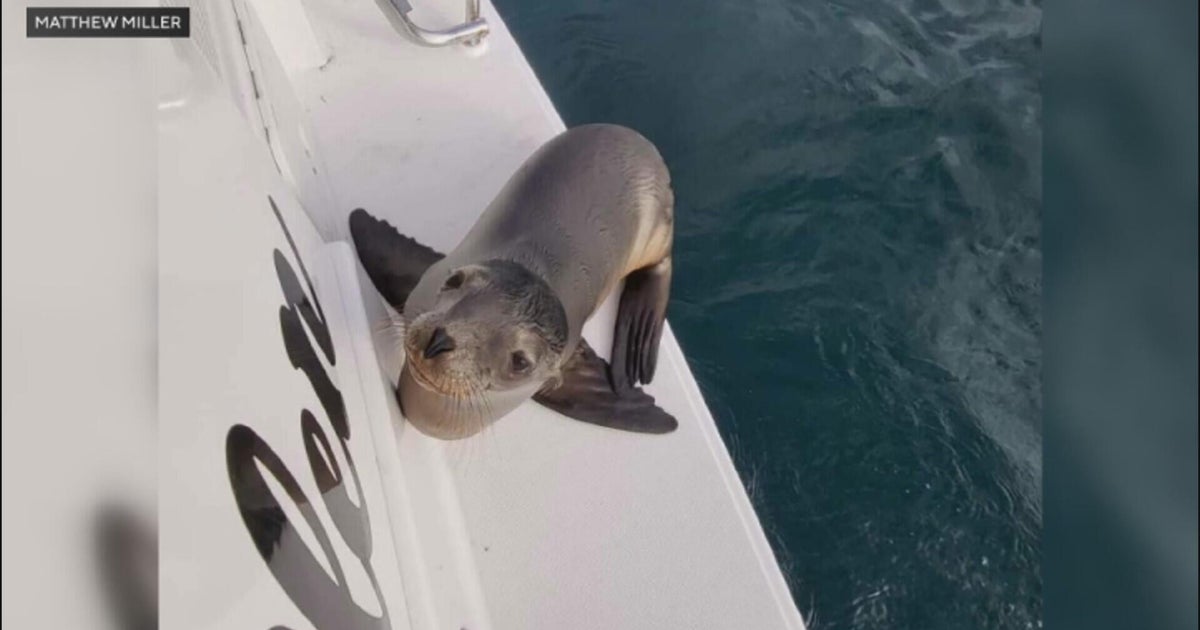Transcript: Mohamed El-Erian on "Face the Nation," September 6, 2020
The following is a transcript of an interview with Mohamed El-Erian, Allianz Chief Economic Advisor, that aired Sunday, September 6, 2020, on "Face the Nation."
JOHN DICKERSON: And we go now to Mohamed El-Erian, chief economic adviser for the financial services company Allianz. He joins us from his home in Laguna Beach, California. Good morning.
ALLIANZ CHIEF ECONOMIC ADVISER MOHAMED EL-ERIAN: Good morning.
JOHN DICKERSON: So let's start with the unemployment rate. On Friday, we learned in August, it dropped to 8.4 percent. Mohamed, what's your sense of where the economy sits right now?
EL-ERIAN: So if you look just at the numbers we got on Friday, you would be optimistic. We got a really sharp reduction in the unemployment rate. We created 1.4 million new jobs. More people came into labor force. But if you pull back JOHN, things get a little bit less good. Why? One is the weight of improvement is declining. And two is that we're trying to come out of a very deep hole. As you pointed out at the beginning of the show, we have almost 30 million people who depend on unemployment benefits. So it's a half full, half empty picture. And that's a problem because of the stalemate on Capitol Hill. So, unfortunately, these numbers simply tell you we are still having a long road ahead.
JOHN DICKERSON: I want to get to the stalemate on Capitol Hill in a moment. But the Federal Reserve chairman, Jerome Powell, in an interview with NPR said that, or suggested anyway, that the future job gains were in industries and sectors of the economy that might be harder to revive because with COVID still around, those industries are- they require people to participate in them and people just aren't ready yet. How do you read that of what's left out there to be gained on the economy?
EL-ERIAN: He's absolutely right. There's this notion of counterparty risk or what you and I would call trust. In order for us to engage in economic activity, I have to trust that you're healthy. You have to trust that I'm healthy. And until we have a clear way of doing that, people are going to pull back. So we're not going to see the quick recovery in all sectors. And that comes at a time of increasing inequality, not just of income and wealth, but of opportunity. So, as I said earlier, it's a long road ahead. The good news is we have the policies to accelerate it. The bad news is that the political system doesn't enable that.
JOHN DICKERSON: I want to get- stay on that- that notion of counterparty risk for a moment. There has been this clumsy debate about, quote unquote, opening the economy or doing what's necessary to mitigate the pandemic. What I hear you saying is as long as people are making risk assessments about their own health, they're not going to engage in the kind of economic activity that gets America back to where it was economically before this hit.
EL-ERIAN: That's absolutely right. We have to understand there's a difference between ability to work, re-open the economy and willingness to work, willing to go in and engage in the economy. And until you improve both ability and willingness, we're not going to get back to where we were. So, no, these are not alternatives. We've got to do both. We've got to re-open in a healthy fashion.
JOHN DICKERSON: Let's talk about Capitol Hill. If- if you could make policy by magic, what would be the most useful policy that might help the economy in its current position?
EL-ERIAN: I would embark on a four pronged strategy. One is relief, and we've heard a lot about it, just helping people who are suffering for no reason of their own. Two is living better with COVID, what we just talked about. Three is capturing what are long term pressures on growth. We are seeing much more industrial concentration. We are seeing much more deglobalization. And finally, reducing household economic insecurity. People have suffered. They've dug into their savings. They're not going to be as willing to- to spend in the future unless you give them more of a safety net. We can do this, JOHN. It's a matter of political implementation.
JOHN DICKERSON: So there's the political implementation and then there are the new numbers we got this week on the deficit. Record setting numbers, 3.3 trillion, the Congressional Budget Office said, in 2020 which is three- more than three times the shortfall in 2019. How much should we keep the debt and deficit in our thinking in terms of these short term measures and their cost?
EL-ERIAN: We should keep it in our thinking with an important qualification. The reason why we care about debt and deficits is because of what's called sustainability. It's like you at home. How much you spend depends on how much you earn, how much debt you get into depends on your future earning potential. What's critical is to make sure that the deficits promote long term economic growth. If they do that, and they can, if they do that, we won't have to worry over the deficits. If they don't, then we're going to have both a growth problem and a debt problem.
JOHN DICKERSON: And sometimes people talk about the relationship between debt and- and the cost of money or interest rates. The Federal Reserve signaled that it doesn't look like rates are going up any time soon. Help people understand where the Federal Reserve is coming from these days.
EL-ERIAN: So basically, the Federal Reserve is pedal to the metal. They will do whatever they can in order to sustain the economic recovery, but they are only an enabler. They can't deliver outcomes. So what they're trying to do is buy time for other policy makers to step in and actually improve economic growth. So look for them to maintain interest rates really low, almost at zero. Look for them to buy more securities and look for them to continuously assure us that they're there covering our back.
JOHN DICKERSON: Help us understand why the stock market is booming even though the economy is in the difficult position it's in.
EL-ERIAN: Because of the Federal Reserve. You know, the basic question you ask yourself, if you are a professional investor is who else is buying this market? And if you believe that the Federal Reserve with a- with a- with a printing press in the basement and it's not a commercially oriented entity, it's not price sensitive, if you believe that they're going to continue to support you, you buy ahead of them. But, JOHN, I keep on stressing there's a limit to how much you can disconnect financial markets from the underlying economy. And we have disconnected them a great deal this year.
JOHN DICKEROSN: Final question in our last 40 seconds, Mohamed. Think in the long term. In 2021, 2022 what kinds of long term economic questions should we be thinking about as we think about this presidential election, as we try to think of how to climb out of this for the future?
EL-ERIAN: It's one, JOHN, can we grow in an inclusive and sustainable manner. If we don't, we're going to have big social and financial issues. It's about inclusive growth.
JOHN DICKEROSN: All right. Mohamed El-Erian, thank you so much for being with us, helping us sort through all of this. And we'll be right back with a lot more FACE THE NATION. Stay with us.



